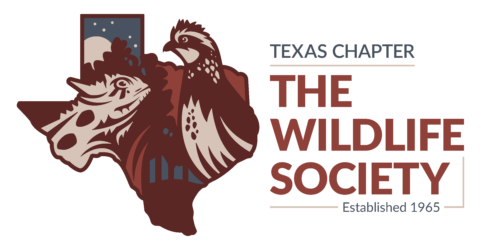2025 Nominees
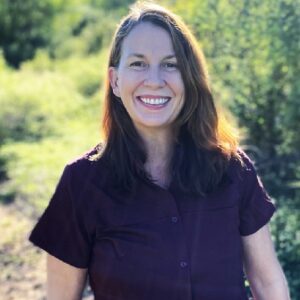 Sarah Fritts, Ph.D.
Sarah Fritts, Ph.D.
Vice President Nominee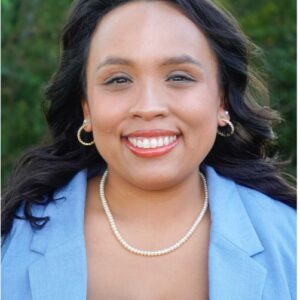 Maria Florentina Mejia
Maria Florentina Mejia
Vice President Nominee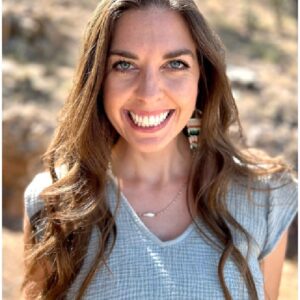 Olivia Gray
Olivia Gray
Secretary Nominee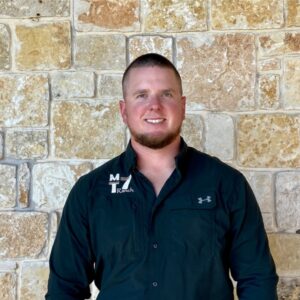 Cody Samek
Cody Samek
Secretary Nominee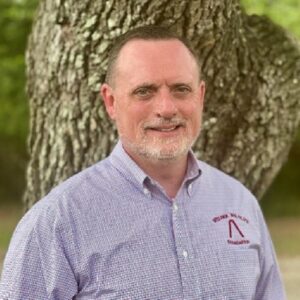 Dale James, Ph.D.
Dale James, Ph.D.
Board Member-At-Large Nominee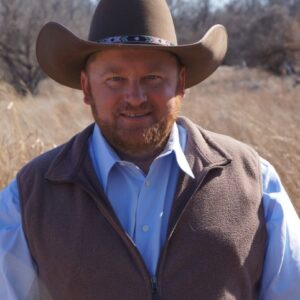 Daniel Price
Daniel Price
Board Member-At-Large Nominee
Ballots are sent electronically in January. Check your email to submit your vote. Election results will be announced during the TCTWS Business meeting in February.
Click the nominee’s name below to view more information.
Vice President Nominees
Sarah Fritts, a Certified Wildlife Biologist©, Associate Professor, and Director of the Wildlife Ecology Program at Texas State University, has been actively involved in TCTWS since she moved to Texas in 2014.Currently, Sarah serves as the TCTWS Certification Committee Chair. She previously served countless roles for TCTWS and the annual conferences including being a plenary speaker in 2024, serving on the Honorary Life Membership Award Committee, judging Cottom Award abstracts and research posters, and leading workshops that offer certification guidance.
Beyond TCTWS, Sarah has been very involved with TWS since first becoming a member 20 years ago. Sarah is an alumnus of the TWS Leadership Institute (class of 2015), the Southwestern Representative and Co-Chair of the Certification Review Board, and Secretary of the Renewable Energy Working Group (REWG). She has served as the Subchair of the Submitted Poster Abstract Committee, and as a member of the Program Committee, Contributed Papers Subcommittee, Abstract Review Committee, and the Leadership Institute Application Review Committee. She also has been an invited speaker three times for the Women of Wildlife symposium and organized a symposium on renewable energy ecology.
Sarah is a strong advocate of supporting professional development through student chapters. As an undergraduate, she was an active member of the University of Georgia Student Chapter. As a master’s student, she served as the graduate representative and the education and outreach coordinator for the University of Illinois Urbana-Champaign Student Chapter. Presently, she serves as the co-faculty advisor for the Texas State Student Chapter where she promotes hands-on experiences for students, such as organizing annual duck hunts, participating in deer capture events, and mentoring undergraduates conducting various research projects. She regularly takes students to TCTWS conferences to network, compete in the Quiz Bowl, and present posters.
If elected, Sarah would be excited to learn, leverage, and serve TCTWS while supporting the three pillars of TWS as they apply to TCTWS: Building Community, Supporting Professionals, and Exercising External Influence. She is also excited to be more heavily involved in current Conservation Affairs issues facing our state, fundraising to support our missions, and engaging and supporting our membership.
My name is Maria Florentina Mejia, but everyone knows me as Masi. I serve as Manager of Education Programs at East Foundation. East Foundation’s mission is to promote the advancement of land stewardship through ranching, science, and education. I have reached over 42,000 students in the classroom, hosted over 13,000 students on the San Antonio Viejo Ranch, educated over 23,000 students through virtual field lessons, and educated close to 900 teachers through teacher workshops. Additionally, since 2019 I have helped mentor 221 high school students through the Land Stewardship Ambassador program where 69% of alumni continue to provide life updates.
I have been a member of TCTWS since 2009 and attended my first meeting in 2010. I received a B.S. in Environmental Conservation of Natural Resources and an M.S. in Wildlife, Aquatic and Wildlands Science and Management from Texas Tech University. My research focused on what motivations professionals and students had to pursue a career or degree within the field. I am also a current participant of the 5th cohort of The University of Texas –Lyndon B. Johnson School of Public Affairs – Women’s Campaign School. I have received support from the Jane Nelson Institute for Women’s Leadership at Texas Woman’s University to participate in this program and I am scheduled for graduation November of 2024. Women’s Campaign School empowers women with skills needed to succeed in the political arena. My goal is to use the skills learned within campaign school to further the mission and vision of TCTWS and work towards influencing policy.
My involvement with TCTWS includes being on TTU’s Quizbowl Team as an undergraduate student. I have served TCTWS as Secretary and Board Member-at-Large. In 2023, I served as Co-Director of Wildlife Conservation Camp where 23 high school students participated, and I raised over $12,000 to support Wildlife Conservation Camp.
I am committed to furthering the mission and vision of TCTWS. We are extremely fortunate to have members who are experts in the field, and we need to capitalize on their expertise for the sustained biodiversity within Texas.
Secretary Nominees
I am currently the wildlife biologist of Jeff Davis and Reeves counties for Texas Parks and Wildlife in far west Texas. I conduct wildlife surveys of multiple species such as pronghorn, mule deer, quail, dove, and bighorn sheep. As a biologist, I assist landowners in managing habitat by formulating recommendations they can utilize to positively impact multiple wildlife species. Within both counties, I provide guidance on over 900,000 acres of land and work to gain productive relationships with each landowner.
I hold a B.S. in Natural Resources Management from Texas Tech University and am currently working to obtain my M.S. in Range and Wildlife Management from Sul Ross State University. My thesis focus is on potential competitive interactions of non-native aoudad with native desert bighorn sheep and mule deer in the Trans-Pecos.
I serve on the Female Employee R3 Leadership Team representing the Big Bend Region for Texas Parks and Wildlife, with the goal of engaging more women in hunting activities. I have been actively involved in the Texas Chapter of the Wildlife Society for the past 8 years and currently serve as the Program Committee chair. Additionally, I am a hunters education instructor, a hunt master, and guide for the Texas Youth Hunting Program. I am very passionate about this activity and feel every hunt is a way to empower and educate the next generation to understand ecosystems and the impact of management through conservation.
Cody Samek has been working as a Wildlife Biologist and Intern Manager at MT7 Ranch in Breckenridge, TX, for the past five years. In this role, he has had the opportunity to oversee and teach 46 interns from various schools across Texas and the U.S. Along with managing the daily tasks for interns he helps implement habitat management practices and assists with ranch duties ranging from cattle work to wildlife data collection. His efforts have assisted with MT7 Ranch receiving the 2024 Leopold Conservation Award from the Texas Parks and Wildlife Department (TPWD). While managing interns can be challenging at times, Cody finds it fulfilling to see their growth and development into capable wildlife biologists.
Outside of his work at the ranch, Cody remains connected with his alma mater, Tarleton State University, and is involved with the Scholarship Committee for the Texas Chapter of The Wildlife Society (TCTWS). As Co-Chair of the scholarship committee, he helped increase the number of applications from an average of 10 to over 30. Now serving as Chair, Cody is eager to continue this progress and hopes to expand both the number of applications and the scholarships available to students for this up coming year.
Cody understands the significance of early involvement in the society. The connections, experiences, and relationships gained through participation are invaluable after college, contributing greatly to his growth as a wildlife biologist and manager. He is committed to sharing this knowledge and fostering similar growth with not only his interns at the ranch but with every student across the state. Cody believes that branching out beyond one’s university is crucial, whether pursuing a career in the private or public sector. His goal is to bridge the gap between students and professionals, enhancing opportunities for all involved.
Board Member-At-Large Nominees
Dale James is Chief Executive Officer for the Rob and Bessie Welder Wildlife Foundation in Sinton, TX, where he is responsible for leading the Foundation’s staff and volunteers in achieving a mission of cultivating the future of wildlife conservation through programs in conservation research, education, and land management.
Prior to joining the Welder Wildlife Foundation, Dale was employed by Duck Unlimited for 18 years providing conservation services throughout the southeastern U.S. in various roles, including regional biologist, land conservation manager and director of science and planning. His primary conservation focus has been in the areas of wetland and waterfowl conservation, land protection and ecosystem service science.
Dale holds a Ph.D. in Wildlife Science through a joint program between Texas A&M-College Station and Texas A&M-Kingsville, an M.Sc. in Range and Wildlife Management from Texas A&M University-Kingsville, a B.S. in Wildlife and Fisheries Science from Texas A&M University and is a TWS Certified Wildlife Biologist®. Throughout his career, Dale has had the opportunity to serve in various committee capacities with three Migratory Bird Joint Ventures, the Southeastern Association of Wildlife Agencies, and several state and regional advisory groups. After being away from Texas and the TCTWS for some time, Dale is looking forward to reengaging and helping contribute to the success of TCTWS. He most recently assisted the Clarence Cottam Awards committee in 2024.
Dale lives at the Welder Wildlife Foundation with his wife Michelle.
Daniel Price is the Pineywoods Ecosystem Project Leader with Texas Parks and Wildlife Department in Nacogdoches, Texas. He oversees 8 Wildlife Management Areas and 7 staff, managing roughly 250,000 acres throughout East Texas partnering with multiple different agencies. Daniel is always looking for opportunities for himself and staff to grow professionally, while improving habitats throughout the WMAs to benefit native flora and fauna. The team provides quality hunting opportunities for all hunters and are passionate about educating the public through outreach and research/demonstration.
Prior to this position, Daniel has worked through several different stages of his life both professionally and personally. Growing up on a small farm outside of Ennis, TX where hunting, fishing and roaming the country was common, he knew a career outdoors was necessary. With the help of his horticulture teacher from high school, Daniel applied for and was accepted to Tarleton State University where he received a B.S. Degree in Wildlife Management May of 2009. His passion to led and be involved with TWS started in college where he held multiple officer positions, ultimately serving as the Tarleton Student Chapter president his senior year. Daniel attended his first Texas Chapter meeting in 2007 and has only missed a couple since. As a professional, he has held numerous committee chair/co-chair positions (finance, student activities, awards, scholarships) and has assisted with numerous committees (student activities, publications, awards, and currently program). In 2018, Daniel participated in the Early Career Professional James G. Teer Conservation Leadership Institute. Most recently he served one year as the Secretary-Treasurer for the TWS Habitat Restoration and Conservation Working Group and was honored to be guest speaker for the Skill Building Webinar last April. Daniel is a TWS Certified Wildlife Biologist and stays active at the state level, always willing to step in and assist where needed.
Daniel started his career with TPWD as a maintenance park ranger at Huntsville State Park where he is fully convinced the Lord put him there to meet his wife, Chrissy. Cleaning bathrooms and picking up trash in the day use area is not what a degree in Wildlife Management was intended for but it was a place to start. Just shy of a year, Daniel accepted a position as a County Wildlife Biologist, moving to Rusk, TX and started his family. In 2016, he moved to Fort Worth, TX becoming the Natural Resource Manager at the Fort Worth Nature Center and Refuge. This was a great opportunity to grow as a leader preparing him for his current role as Project Leader with TPWD.
Daniel still enjoys being outdoors hunting and fishing as he did as a young man, but now enjoys even more to provide those opportunities to his wife and kids. Daniel and Chrissy have been married for 12 years and have three kids, Willow (11), Wren (9) and Reed (6). He has had the opportunity to enter both his wife and oldest daughter into the Texas Big Game Awards for their First Big Game Harvest and looking forward to when his youngest two harvest their first big game animal.Outside of work, Daniel spends many hours on the ball fields or in the bleachers coaching/watching his girls play softball and his son play baseball and football. Their family vacations typically involve a camping trip or a place to enjoy being outdoors hiking, fishing and quality family time.



